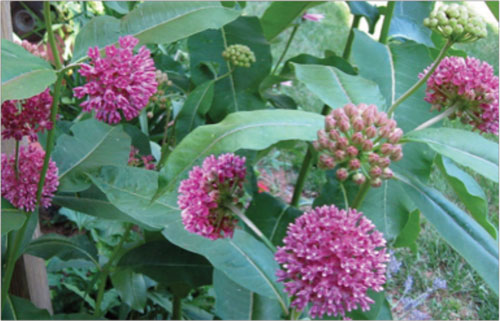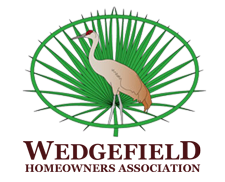“Plant a Seed and Grow a Friendship”
The Group Objective is to create, promote and develop an interest in gardening by sharing knowledge and experience. Feel free to participate by posting your gardens ideas, tips, project and questions on our Facebook page. We are always willing to learn new ways to keep our garden growing. https://www.facebook.com/groups/419131141784330/?ref=bookmarks
Who: Anyone interested in gardening and plants are welcome to attend!
What: Sharing gardening and plant information, educational speakers, educational field trips, lunch with friends.
Where: Wedgefield Club House Conference Room
When: The first Thursday of every month at 11:0 am
The Wedgefield Gardening Friends met on September 6, 2018, at the Wedgefield Clubhouse. We had one new guest, Cindy Zwarich, who lives in Wedgefield now, but has lived in Florida for 14 years. She is originally from Canada and loves the Florida weather. Alma Hardy and Brenda Higgins gave a presentation on Monarch Butterflies.
IT’S A FACT!
- A black spot on an inside surface of its hind wing distinguishes the male Monarch butterflies from the females that have no such spot.
- The monarch butterfly does not have lungs; breathing takes place through tiny vents in the thorax or abdomen called spiracles, and an organized arrangement of tubes called trachea, distribute the oxygen through the Monarch’s body system
- They have a 10 cm wingspan and weigh between 0.25 to 0.75 grams
- The wings flap slower than other butterflies at about 300 to 720 times a minute
- Senses of smell and vision help the Monarch butterflies to assess its environment
- They have a broad spectrum perception of colors and can see even the UV light that humans cannot
- Their process of communication uses colors and scents.
- Chemical discharged from the rear wing glands help the males to attract its mate
- The Monarch butterfly can cumulatively lay about a maximum of 250 eggs per day at the rate of one egg at a time.
- The witnessed highest number of eggs laid by a monarch butterfly in captivity is 1179
- These butterflies use their eyes to locate flowers, they use their antennas to smell the nectar and the minute receptors lodged in their feet called “tarsi” come in handy to taste sweet substances
- Adult monarchs feed on nectar and water by sipping on it using a sucking tube called proboscis that lies coiled under the head when not in use
- Monarch butterflies store a poison called Cardiac Glycosides that they had ingested by feeding on the leaves of the milkweed foliage in their larva stage.
- These are sometimes harmful to its vertebrate predators but ineffective on invertebrate predators. The toxic effect on vertebrates, however, depends on the level of intake. These toxins provide these butterflies with a poisonous defense against its predators such as lizards, birds, and frogs.
Milkweed – The monarch’s life cycle is solely dependent upon MILKWEED ~ the monarch’s HOST PLANT.

Scientifically known as Asclepias, there are over 100 varieties of milkweed across the USA. Milkweed is NOT just another weed. It is a natural wonder – with a unique life cycle of its own. Without milkweed, the monarch cannot exist, yet across the USA, milkweed is being cut down! Parking lots, condominiums, and shopping malls are replacing the fields. Milkweed is from the plant family Asclepiadaceae – the genus of herbaceous, non-woody plants. Asclepias can be compared with the orchid family and produce very complex flowers in the plant kingdom. Its name is derived from the milky, latex type sap that is secreted when stems are broken – the sap contains cardenolides which can be toxic and useful for protecting against dangers. A predator will experience a bitter taste and learns to stay away from the bright orange and yellow patterned colors. The adult butterfly stores the cardenolides in their systems for protection.
****You may also get assistance at the IFAS Extension where Master Gardeners are available from 8 am-noon and 1- 5 PM weekdays; or call 407-254-9200.
NEXT MONTH, October 4, 2018
The Gardening Friends will be going to the UF/IFAS Extension, 6021 Conway Road, Orlando, Fl., 32812 for a tour. We will meet at the Wedgefield Clubhouse at 10:15 in the parking lot to arrange carpooling. Please wear comfortable clothes and shoes, a sun hat, and bring water.



